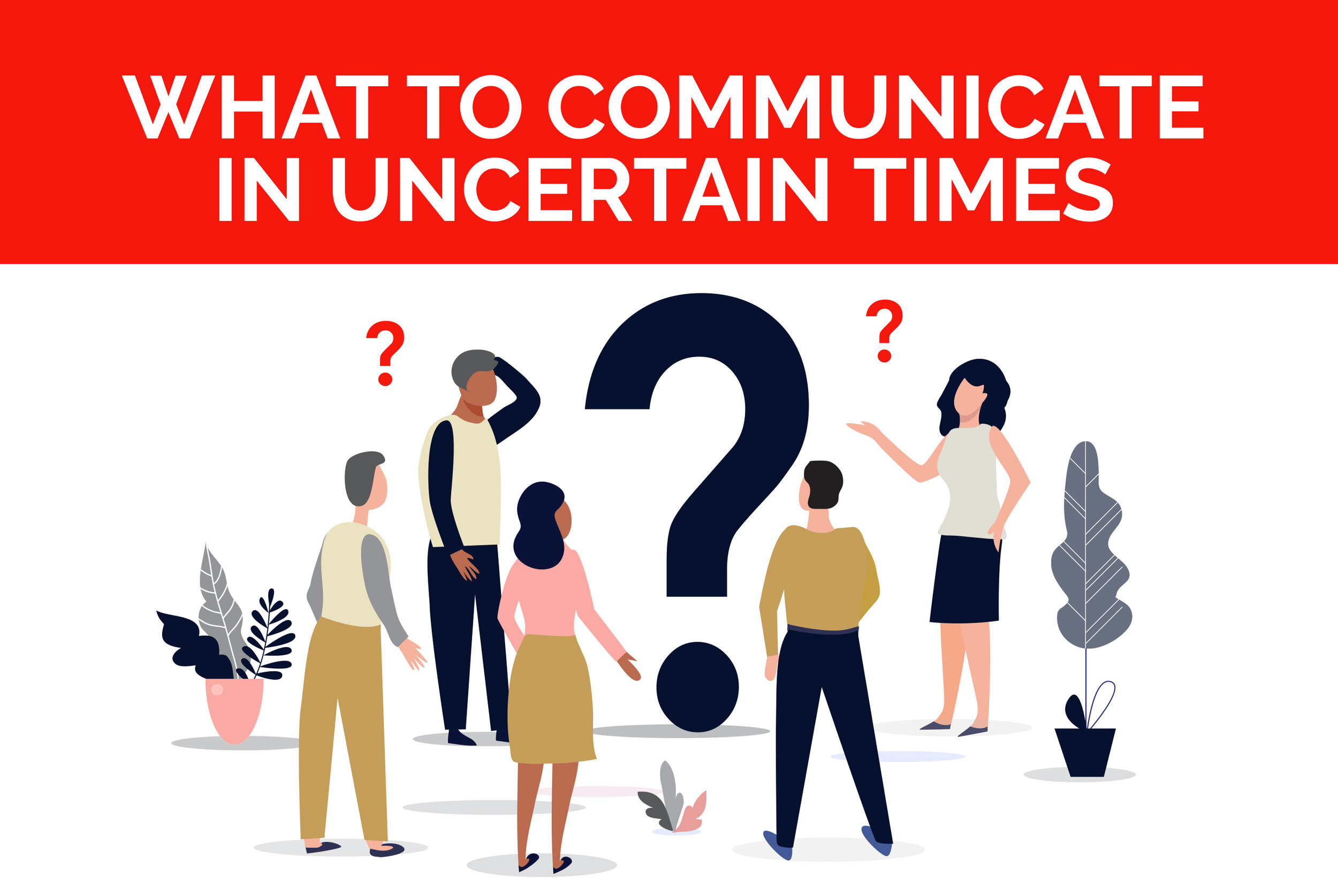The COVID-19 crisis makes our craving for certainty and truth seem even more pronounced. The world suddenly feels more fragile, and people everywhere are looking for a way forward.
We’ve been talking with business and community leaders this week—all of whom are facing unprecedented pivots, new levels of paperwork, insufficient data to make decisions, and fear-driven workers and customers. They are working feverishly to lead wisely, knowing that many of the rules by which they will ultimately have to abide are still in flux. It’s rough to outline a clear path forward even those with a history of clear vision and decisiveness.
So what can leaders communicate, when there’s little certainty about the future?
Be present. Actions do speak louder than words. Initiate contact—even while physically distancing—to stay in touch with our teams. Resist the urge to say nothing if we don’t have big answers. Presence matters.
Listen. Resist the urge to believe that listening is “doing nothing.” Being heard makes people feel understood and helps them put words to complex emotions. This has its own generative impact, even when a clear path forward isn’t there.
Believe. It takes courage to believe in possibilities that are not yet seen—and even more so in an atmosphere where there is so much being said out of fear and even despair. But belief casts is own power over those it touches.
Many of us can cite our own stories of achieving something we didn’t imagine possible, because someone believed in us. It is perhaps the hardest leadership task of all to keep hope alive during times when things are uncertain, and requires a great deal of attention to our own heart and mind.
Bring calm. Leaders can contribute to functionality by being aware of the impact of our own emotions on others. We know emotions are contagious, and that anxiety spreads, as does calm. Remaining calm and aware in the face of crisis allows us to consider alternatives, process issues more clearly, and wait to react in the search for more information.
Be truthful. Being truthful doesn’t mean conveying every possible fear one can conceive of, but being honest about what one knows and what one doesn’t know. There is a delicate, maybe even dangerous dance between casting a vision for a future that is good and being unrealistically positive, and finding this balance requires continual effort, emotional awareness and mental clarity. At times, the only promise that can be made is what we will commit to doing and who we commit to being in uncertain times. But in all situations, there is a possibility for growth, and this can be a light in the darkest of times.
Be congruent. Follow the rules you set for your team. If they must cut budgets, then so should we. If they must work longer hours, then so should we. Be the first one to take a pay cut, if that is needed. When Amazon’s president’s net worth exceeded $200 billion, how he treated his employees became national attention, and to no one’s surprise. Leaders are scrutinized even more carefully in times like these.
Leading is difficult during COVID-19. It strains all of our capacities. But it is also a time where we can do the intense inner work that will make us better humans, and better leaders. Giving ourselves permission to fail while still holding to high standards for ourselves as leaders can make this a time of deep personal growth, increased humility, and greater compassion. And in doing this work, we lead others to do so, as well—even when the path forward remains unclear.
Related Blog Posts:


